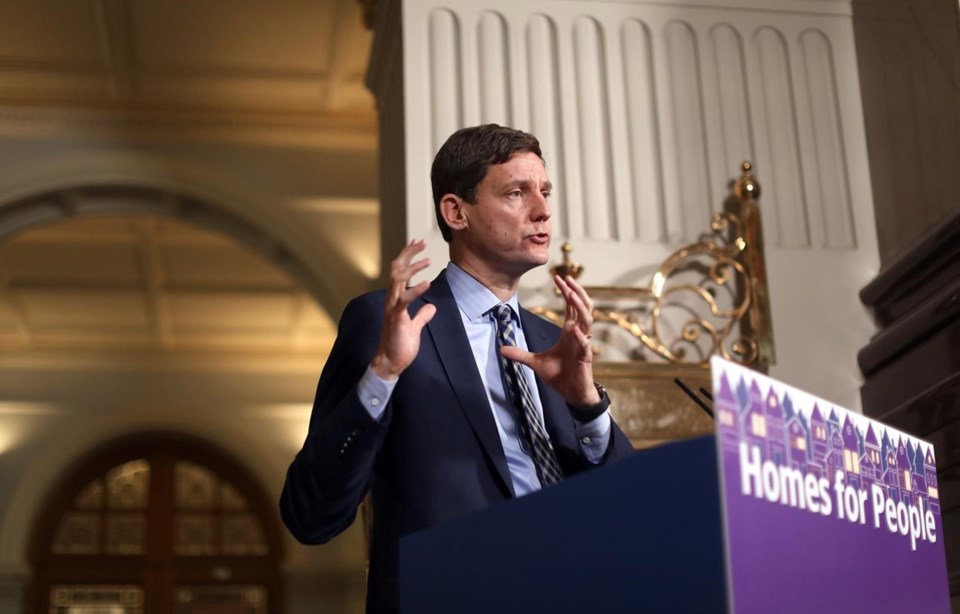VANCOUVER — It's "hard to understand" why many politicians still believe they can rely on the private sector to deliver affordable housing and instead it's time for governments to step up, B.C. Premier David Eby told a conference on Tuesday.
Eby said there are proposals at the federal level to sell public land and buildings to help solve the housing crisis, but B.C. is doing the opposite by taking inventory of provincially and municipally owned land in order to build more homes.
"We are acquiring properties," he told the BC Non-profit Housing Association's annual conference. "We did an inventory of every property ... that the province owns, we passed a law to require school boards to do an inventory of the properties that they own and provide that information to government, (as well as) health authorities, cities. Everybody is looking, what land do we have?"
The province is buying land near bus and train corridors to build homes "so that people who actually use transit can actually afford to live near transit stations," Eby added.
"These are the revolutionary ideas coming from our government, from the known radicals that are running the government," he joked, drawing laughs from the crowd.
It's clear how Canada wound up in the current housing crisis, he said.
"We got here when government got out of the business of building housing for middle-income people," the premier said.
Eby's NDP government is reversing that course, he said.
"It does matter who is in government" when it comes to housing, he said.
Eby said he's especially excited about the BC Builds program, saying the province will partner with builders to develop housing on government-owned lands.
"We are on the verge of some very significant announcements about that."
The premier told the crowd that he was excited about the potential for the federal government to provide more money for housing in its budget update.
The update released later on Tuesday earmarked an additional $15 billion for low-cost loans to builds and developers and another $1 billion for affordable housing.
B.C. Finance Minister Katrine Conroy said she was pleased the federal government designated $15 billion toward housing, but concerned the money isn't set to start flowing until 2025.
"My worry is what they are proposing is not coming for a while," she said at the legislature in Victoria. "We need it now. That's a real concern. I'm disappointed it's not until 2025-26."
B.C. will continue with its robust housing agenda, Conroy said.
"We're going to still move ahead with our housing plan, but it definitely would have been a huge help to have the federal government come across with more funding," she said.
The premier touted measures his government has introduced over the last year to tackle housing challenges, including bringing in legislation that prevents homeowner groups from banning owners from renting out their condos, and tightening rules for short-term rentals.
Eby said his family uses platforms such as Airbnb when they're on vacation, but the status quo can't continue when vacancy rates are so low and people looking to buy a home to live in are competing with those buying properties to run like a hotel.
"We can't leave any housing unoccupied," he said.
The B.C. government introduced legislation earlier this month to require local governments to update zoning bylaws to permit secondary suites and multi-unit buildings on lots typically used for single-family detached homes.
The changes would also phase out one-off public hearings over rezonings for housing developments that are consistent with official community plans.
"Those torturous moments when you're standing at your city council, making the pitch for housing that people desperately need, and a bunch of people (are) lining up at the mic to explain why you're going to destroy their neighbourhood. Those are going to be a thing of the past," Eby told the crowd.
This report by The Canadian Press was first published Nov. 21, 2023.
Brenna Owen, The Canadian Press



